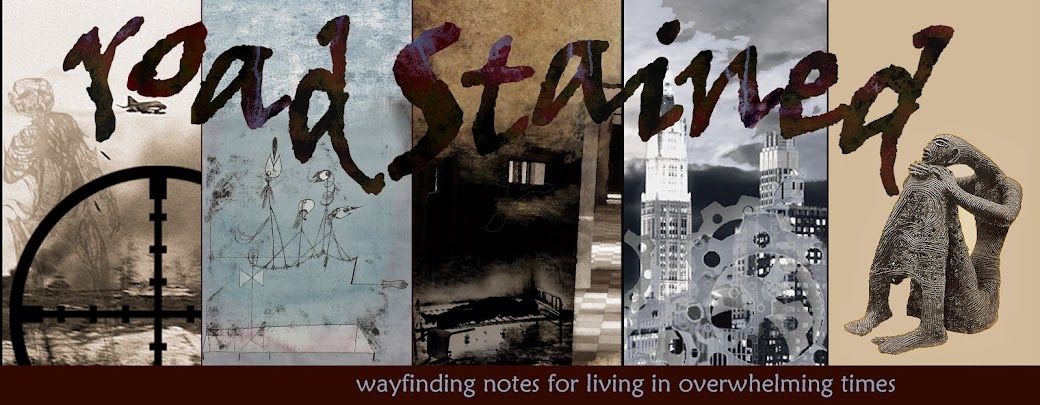Some thoughts on an item in this week's news: more than four in five Canadians – 82 per cent – back the new legislation to expand the powers of 'intelligence agencies' and police.
A century of war (the thuggery of nation-states and non-state gangs) has been a godsend for weapons-makers, saviors of many kinds and the burgeoning ‘national security’ industry – the latter with its public face of ensuring ‘public safety’ and its secreted history of abuses and deceit.
Among democracies alone, just consider the operations of the French in Algeria, the British in Ireland, the US across its global network of hidden torture centres, and Canada-US collusion in the imprisonment and torture of Maher Arar in Syria. Ours is the world of Camp Mirage and Hotel Redact. State secrecy and abuses (officially: 'mistakes', 'exceptions', 'bad apples') in the name of ‘public security’ are now the norm.
Yes, there is the incidental exposure - the ‘Pentagon Papers’, the recent Congressional report on CIA abuses, the O'Connor Commission – all of which repeatedly decry the lack of sufficient public oversight of covert state operations. But what feels new is how normalized has become the public view that ‘anything is acceptable’ to ensure our ‘security’.
A few decades ago Hannah Arendt called this security/secrecy/abuse complex a ‘crisis’ for democracies, but she thought an independent media and election-time accountability would save the day. Now, writes Scott Horton in ‘Lords of Secrecy: The National Security Elite and America’s Stealth Warfare’, ‘the dynamics have shifted considerably in favor of national security elites. They have carefully calculated the points likely to alarm the public and stir it to action. More effectively than before, they use secrecy not only to cover up their past mistakes but also to wrest from the public decisions about the future that properly belong to the people’. Combine this with a media that thrives on violent crisis, and men like Canadian Prime Minister Stephen Harper and his circle who see political advantage in public alarm and its further stirring, and we see the public opinion results of this week.
After posting this, my friend Tariq Ahsan wrote: Hopefully public opinion will change for the better after an informed debate takes place, and the level of fear from recent scares in Quebec and Ottawa subsides.
In response: I wish to be hopeful on these matters, but don’t see many reasons to be so. Few experiences are as powerful as the feeling of insecurity, and few promises more deeply – instinctively? - attractive as the promise to be made safe.
Some days the men in the PMO seem like demagogues: - stirring and manipulating, for their own gain, the fears, racism, and limited cultural space to reflect independently; promising the ‘strongest’ action; accusing anyone who questions of ‘weakness’ and ‘naïveté’. But in the case of Harper and his associates, this suggests a kind of self-awareness that I doubt exists.
Instead, I think it more likely that there is something of an alignment between his own and widespread public views about race, ethnicity, dissent, social inequality, conflicts between cultural traditions and modernity, etc. Mix this with the experience of so many Canadians (inadmissible to consciousness, admittedly) of having no effective power to make the society we might want. Then a ‘leader’ like Harper appears, saying: I promise you power against unseen and ever-present threats, power to ‘defend our most precious civilized values’, power to avenge, certainty against uncertainty . . . .
It’s worked many times before and it seems to be working now. The irony is that it offers us the appealing-mystifying ideals of the status quo while in practice keeps us feeling vulnerable and actually disenfranchised.


No comments:
Post a Comment